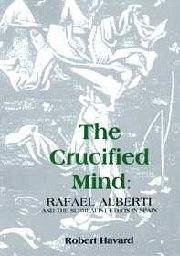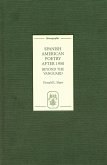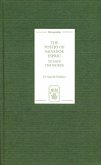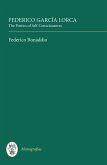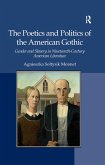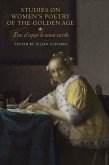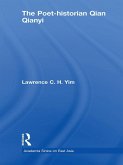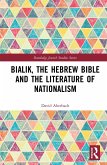Alberti is the key in this study of the intense religious element in Spanish avant-garde poetry, art and film of the 1920s and '30s.
Why is the Spanish input to Surrealism so distinctive and strong? What do such renowned figures as Dalí, Buñuel, Lorca, Aleixandre and Alberti have in common? This book untangles the issue of Surrealism in Spain by focusing on a consistent feature in Spanish avant-garde poetry, art and film of the late twenties and thirties: its supersaturation in religion. A repressive religious upbringing, typically under the Jesuits, intensifies both the paranoiac and the mystical - Surrealism's twin pillars - which were already deeply ingrained in the Spanish psyche. Striking examples are Lorca's prophetic voice in New York, Dalí and Buñuel's Eucharistic transformations, Alberti's Loyolan materio-mysticism. Alberti is the fulcrum of this study since his poetry goes the full distance of Surrealism's evolution from Freudian catharsis to metaphysical transcendence until it expires in a Marxist reaction to church-bound tradition when his nation convulses in civil war, the surrealist ethos in Spain is not reducible to measuring how closely it imitates French theory. It is 'more serious' than the French, says Alberti, and its bearings are found on a cross of mental suffering and in a journey out of hell that made real art in practice.
ROBERT HAVARD is Professor of Spanish, University of Wales, Aberystwyth.
Why is the Spanish input to Surrealism so distinctive and strong? What do such renowned figures as Dalí, Buñuel, Lorca, Aleixandre and Alberti have in common? This book untangles the issue of Surrealism in Spain by focusing on a consistent feature in Spanish avant-garde poetry, art and film of the late twenties and thirties: its supersaturation in religion. A repressive religious upbringing, typically under the Jesuits, intensifies both the paranoiac and the mystical - Surrealism's twin pillars - which were already deeply ingrained in the Spanish psyche. Striking examples are Lorca's prophetic voice in New York, Dalí and Buñuel's Eucharistic transformations, Alberti's Loyolan materio-mysticism. Alberti is the fulcrum of this study since his poetry goes the full distance of Surrealism's evolution from Freudian catharsis to metaphysical transcendence until it expires in a Marxist reaction to church-bound tradition when his nation convulses in civil war, the surrealist ethos in Spain is not reducible to measuring how closely it imitates French theory. It is 'more serious' than the French, says Alberti, and its bearings are found on a cross of mental suffering and in a journey out of hell that made real art in practice.
ROBERT HAVARD is Professor of Spanish, University of Wales, Aberystwyth.
Dieser Download kann aus rechtlichen Gründen nur mit Rechnungsadresse in A, D ausgeliefert werden.

